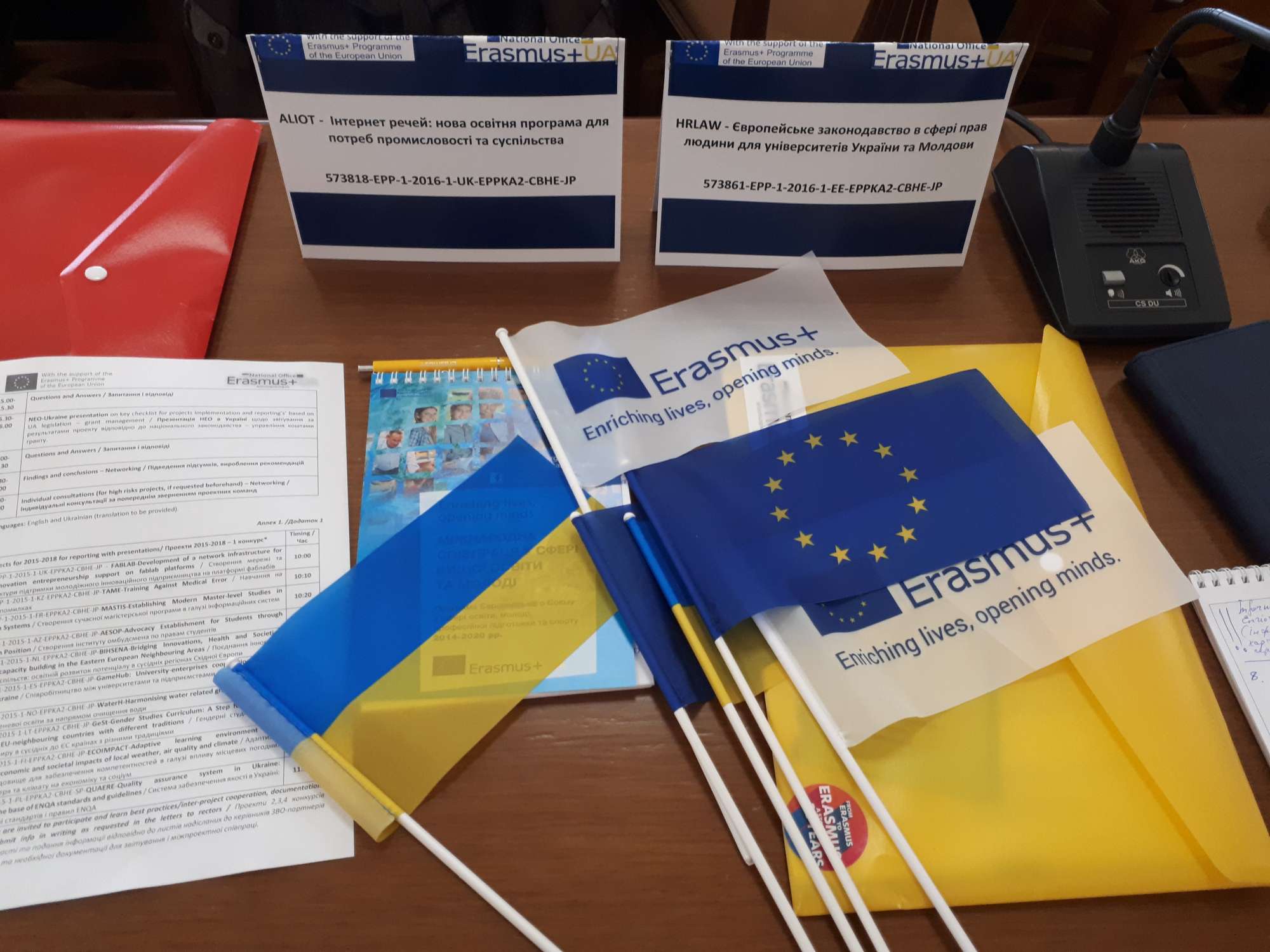Οδηγίες από την Ευρωπαϊκή Επιτροπή προς δικαιούχους σχεδίων που εμπλέκουν οργανώσεις ή εθελοντές στην Ουκρανία, σχετικά με δράσεις που υλοποιούνται / προγραμματίζεται να υλοποιηθούν καθώς και τη συμμετοχή οργανώσεων από τη Ρωσία, κατά την έκρυθμη περίοδο που διανύουμε λόγω της Ρωσικής εισβολής στην Ουκρανία.
In the context of the alarming situation in Ukraine, the concerned participating organisations are instructed to contact the individual participants who are currently in Ukraine or Russia, or who are planning to leave to these countries within the coming weeks to explore available options.
Please be reminded that the force majeure clause can be applied for Erasmus+ and European Solidarity Corps mobility activities taking place in Ukraine and Russia, such as International Credit Mobility activities or others, as foreseen in the template of the grant agreement between National Agencies and the beneficiaries and as defined in the programme guide and other contractual documents. You may thereby cancel, postpone or move activities planned in both countries in the most flexible way, notwithstanding the respect of the general legal framework applying to Erasmus+ and the European Solidarity Corps. Given the exceptional circumstances, the same principles can be applied also to incoming mobility.
More specifically:
- On ongoing outgoing Erasmus+ and European Solidarity mobility to Ukraine or Russia involving participants from Member States or third countries associated to the programmes: As explained above, the force majeure clause may be evoked for an earlier termination of activities taking place in Ukraine or in Russia. Make sure that you are well aware of the national guidelines for the repatriation of citizens and keep your NA updated on these developments. Returning participants should be fully reintegrated in the sending organisation whilst the possibility to continue activities in a virtual modality with host institution/organisation should be explored. Justified repatriation costs will be accepted as exceptional costs, whereas normal reporting requirements apply. In case, exceptional costs are not an option, participating organisations could opt for the use of Organisational Support funds or a flexible use of regional funds .
- On ongoing incoming Erasmus+ and European Solidarity Corps mobility to Member States and third countries associated to the programmes and involving Ukrainian participants: For all Ukrainian participants currently in one of your countries, you are encouraged to explore possibilities to prolong their stay within the programme’s rules.
- On planned Erasmus+ and European Solidarity Corps activities to Ukraine: For any planned outgoing mobilities to Ukraine, you are encouraged to check alternative options (e.g. for H2 mobility, change of destination country), or if the action allows switching them into incoming mobilities (e.g. hosting Ukrainian participants) or alternatively in international actions to use the available Heading 4 budget for activities to other Eastern Partnership countries (Region 2). For international mobility, priority should be to maintain people-to-people links with Ukraine (maintaining some levels of incoming mobility) over budget transfers to other Eastern Partnership countries.
FURTHER CLARIFICATIONS
- We indicated that the force majeure clause may be evoked for an earlier termination of activities taking place in Ukraine or in Russia. We would like to clarify that this option also applies to any ongoing mobility in an Erasmus+ third country neighbouring Ukraine, where related risks exist. Returning participants from such countries should also be fully reintegrated in the sending organisation whilst the possibility to continue activities in a virtual modality with the host institution/organisation should be explored. Justified repatriation costs will be accepted as exceptional costs, whereas normal reporting requirements apply. In case exceptional costs are not an option, participating organisations could opt for the use of Organisational Support funds or a flexible use of regional funds (Regions 2 and 4 for Heading 4).
- We expect to be able to provide you with horizontal guidance on how to deal with Russian participation in European Union Programmes shortly. Awaiting this guidance and as a precautionary measure, we strongly advise you to be as conservative as possible in involving Russian partners in your future projects, making any payments, signing iny contracts ets.
We will keep you informed on further guidance and decisions in this context and remain at your disposal for any necessary clarification.

